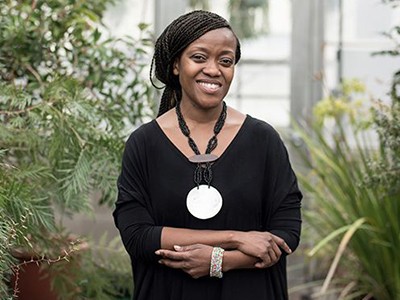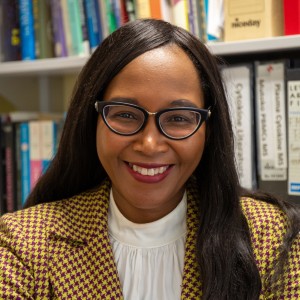In a controversy reported last month, critics accused a UK institute of using African people’s DNA inappropriately, without sharing the benefits with partner institutions in Africa. But the biggest failing I see in transcontinental partnerships goes deeper. It involves inequity in the control of funding, research agendas, outputs, training and infrastructure. At a meeting I led in Accra, Ghana, this year, funders, policymakers and researchers agreed: ‘safari science’ is ineffective. Inequitable partnerships that task African scientists as data gatherers for Western research agendas are unlikely to make a difference to the African health problems that really matter.
I’ve seen this play out for decades. For more than 20 years, I have led a programme in Zimbabwe on human schistosomiasis. For most of that time, international donors concentrated on treating schoolchildren. Our team’s persistence led to the extension of treatment and monitoring to pre-school children, a policy now endorsed by the World Health Organization (WHO). In 2017, I began co-leading a new UK-funded partnership, Tackling Infections to Benefit Africa (or TIBA, the Swahili word for ‘curing infection’).
TIBA brings together world-class researchers from Botswana, Ghana, Kenya, Rwanda, South Africa, Sudan, Tanzania, Uganda and Zimbabwe, plus colleagues at the University of Edinburgh, UK. One project studies the Chikungunya virus, a global public-health problem that is largely ignored in Africa — but that our researchers found was linked to almost 30% of fever cases at one Kenyan hospital. Another examines people who are asymptomatic carriers of sleeping sickness, an under-researched problem that could thwart efforts to eliminate the disease in Uganda.
Four principles are crucial for TIBA. First, our research activities are led from Africa, chosen to reflect local priorities and not dictated by outside agencies. One example is our work on the autoimmune disease systemic lupus erythematosus, which is more common and more severe in people of African descent. The international diagnostic criteria were derived from non-African people presenting mainly with inflamed joints and mucosal membranes. A study of affected Zimbabweans identified a variant of the disease in Africans that is characterized mainly by rashes and skin lesions (E. N. Sibanda et al. BMJ Glob. Health 3, e000697; 2018).
Second, we are shifting the centre of gravity for African health-research decisions to Africa (where it belongs). The bulk of our work — and 80% of our spending — takes place in Africa. I have seen too many projects in which most research funds go to laboratories in the global north or to the salaries of expatriate researchers.
Third, we strive to be equitable. African experts form most of our directorate, steering committee and external advisory group. African-based researchers are the first authors on 9 of the 14 papers we have published in the past 2 years.
Fourth, we aim for inclusivity. Each partner engages stakeholders — from affected communities to national health ministries — at the outset of each project. All of our partners have access to our training and capacity-building activities. We explicitly ask how outputs from a project will guide local decision-making and benefit local populations.
How decolonization could reshape South African science
Such principles are usually expressed more in word than in deed. I have sat through panels reviewing funding applications on global-health or medical research in Africa that did not include anyone from an affected country. Even when local experts are given appropriate responsibilities, anti-corruption and documentation requirements often go far beyond what is expected in funders’ home countries. The obviously low expectations of African scientists and research institutions are as big a burden as the extra bureaucracy. The paradigm is beginning to shift, but the pace of this change needs to accelerate.
The four principles also apply to building institutional capacities. Most funders impose their own approaches to issues such as ethical review, financial management and data security. Finding out what systems are already in place and strengthening research institutions as needed would be more efficient. The Good Financial Grant Practice tool, launched last year by the African Academy of Sciences, is an exemplar of productive, respectful partnering.
Going forwards, the international community should focus on what African-led research offers: a distinct culture structured around knowledge gaps and desired impact, which Western science often struggles with. This mindset naturally leads to collaboration and high-quality science. My work on schistosomiasis, for example, requires me to work with local scientists, government officials, village health workers, teachers, mothers and other caregivers.
African-led research also builds sustainability. Local support must transcend any one project or funding scheme. My work in Zimbabwe has been supported by several funders. I am grateful to them all, but recognize that continuity and the ultimate impact require local commitment. Fortunately, it is self-reinforcing. Our collaborative approach has brought invitations to contribute to strategic initiatives such as the formulation of the African Union’s Health Research and Innovation Strategy (HRISA 2018–2030), to be launched this month, and roadmaps for strengthening national health systems and continental vaccine policy.
Locally led partnerships are essential to producing relevant knowledge and sustainable change. The health of Africa, and the world, depends on making these happen.


 How to shape research to advance global health
How to shape research to advance global health
 How decolonization could reshape South African science
How decolonization could reshape South African science
 How Africa can quell the next disease outbreaks
How Africa can quell the next disease outbreaks








